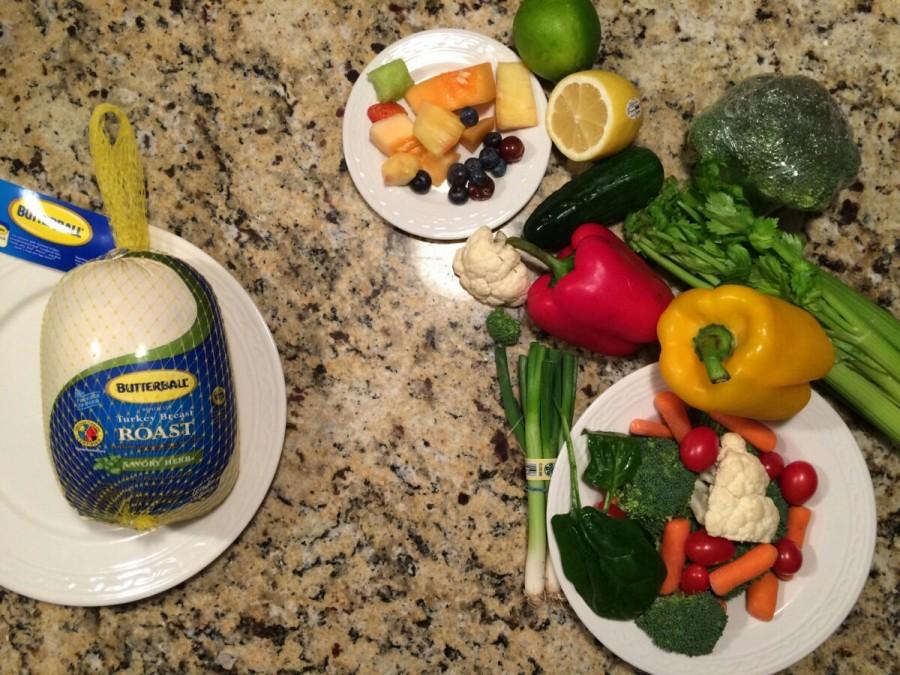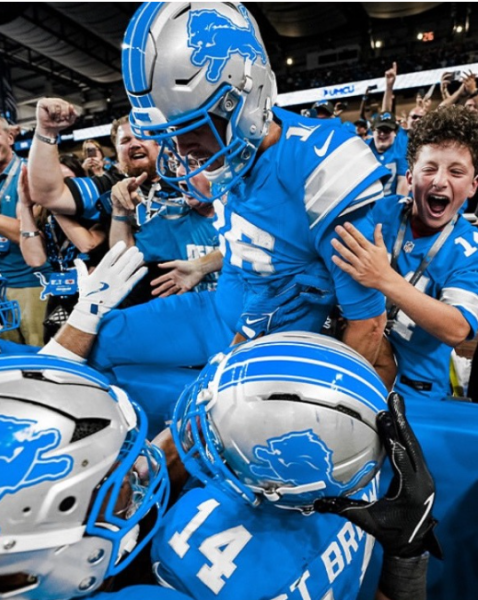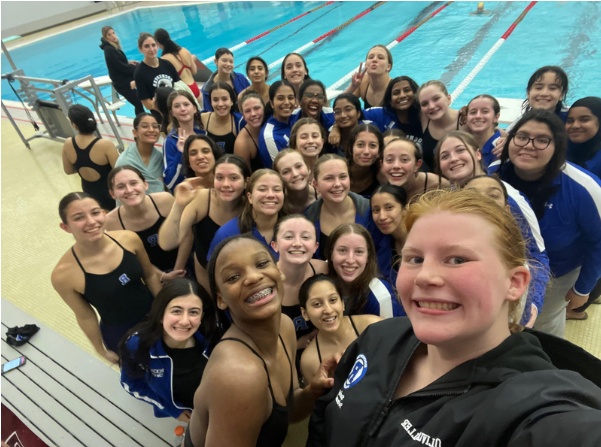Students discuss benefits of meatless diets
There’s a ton of options on how to keep a balanced diet going. No matter what you choose, it’s good to remember what’s being put in.
March 12, 2016
America, land of the free, home of the brave, often has a prime specialty: meats. Though Americans are surrounded by the sound of sizzling barbecues, an increasing amount of the country has chosen an alternate route. According to Vegetarian Times, though only 3.2 percent of the US adult population does not consume meat, considering that this makes up 7.3 million people is crucial to how big vegan/vegetarianism has become. Though there is a plethora of pros (as well as a few cons) to these lifestyles, it remains an interesting and personal choice that people all around us are trying. University of Michigan Freshman Ryan Werner, a pescetarian, comments about his choice.
“I’m technically a pescatarian, because I eat fish, but only every week or two. I decided to be pescatarian about three months ago, partly for health reasons but mostly for environmental reasons,” Werner said. “I thought it might be difficult to give up meat, as I had previously eaten it with almost every meal and really enjoyed it, but I found that it was much easier than I expected. I gradually reduced my meat consumption for a couple months before fully committing.”
Many emerging vegans/vegetarians seem to share the same experience, reminiscing about how the change ended up being simpler than they had originally thought. This can be a good thing to remember for people who are considering giving the lifestyle a try. Junior Emily Smith, a vegetarian, enforces this.
“When you first become a vegetarian, you know of the basic foods you can’t eat anymore like steak, hot dogs, so forth,” Smith said. “But through the first week you start to realize all of the other foods you can’t eat, which is frustrating, but then it’s super easy.”
It has been found that choosing a diet without meat has extremely positive effects on the environment itself.
“You don’t have to become fully vegetarian/vegan to have a positive impact on both your health and the health of the environment,” Werner said. “If everybody ate less meat, greenhouse gas emissions would be substantially reduced, along with the many other negative impacts of industrial agriculture.”
Along with an impact on the health of the environment, vegetarians, vegans and pescetarians often see that the diet has great personal effects.
“I love knowing that I’m standing up for animal cruelty, and I love how much more energy I have and how all around healthier I feel. I also love how it’s caused me to try new foods that I wouldn’t have before,” Smith said. “I’ve always wanted to become a vegetarian, but I read a book on animal cruelty when I was 14, and after I decided to stop eating meat.”
Health teacher Mrs. Amy Oppat reinforces the internal, positive effects of choosing to cut meat out of your diet.
“Meat products are often high in cholesterol, so eliminating those from your diet helps decrease the risk of heart disease. Eating fruits and vegetable provides the body with various vitamins and minerals that are essential for the body’s growth and development,” Oppat said. “They are also packed with antioxidants which decreases the chance of many types of cancer.”
A big concern that many have when looking into these types of diets is the prominent and real possibility of not having enough nutrients. Luckily, there are multiple ways that one might gain protein and other nutrients lost from eating meats with many replacement substances. Ryan Werner, as well as most other vegans, vegetarians, and pescetarians, find that this is not a problem as long as it is tended to correctly.
“I was a little concerned at first about not getting enough nutrients, but there’s not much to worry about–as long as you eat a variety of foods, including lots of whole grains, fruits, and vegetables, you should be fine,” Werner said. “Vegans, on the other hand, will probably need to take multivitamins and/or eat foods that have been fortified with certain nutrients.”
Though it rings true that choosing a diet with the absence of meat can take away from certain essential parts of healthy, balanced eating habits. It’s been proven time and time again, however, that this can be easily taken care of.
“When considering a vegetarian or vegan diet, a person must be conscious of the need for protein. A person who eats meat products is getting all essential amino acids in their diet. A person who does not eat meat can still get their essential amino acids by eating a variety of nuts, beans and whole grains,” Oppat said. “They need to make a conscious effort to incorporate proteins into their diet by consuming a variety of different sources.”
Emily Smith recaps that, as long as it’s made sure that you are balanced in your lifestyle all-around, a vegetarian/vegan lifestyle is certainly enjoyable.
“I am so much more aware of what I eat, so I have drastically improved my diet. I take iron supplements & vitamins, and I make sure to get at least a bit of exercise and sleep in,” Smith said.
If you’ve made the official choice to try out the lifestyle that fits you, It’s important to also consider a few prominent cons that one may be faced with.
“To start becoming a vegetarian, a person would need to do some research. They should also check with a doctor to see if there are any pre-existing conditions that might be affected by such a drastic diet change,” Oppat said. “Some of the cons include that some places have limited selections for vegetarians, private/In-home celebrations may not know to provide vegetarian options, the need for proteins and consumption of all essential amino acids, and getting enough vitamin B12, which is found mainly in animal products.”
Altogether, choosing these types of lifestyles has multiple factors that must be considered, but many assure that it is often worth the try.
“I would urge everyone to make an effort to eat less meat. I personally would recommend cutting out meat altogether, but if that’s not for you, then simply cutting back is great too.” Werner said.
In the end, however, It’s ultimately best to go with the diet that you think truly fits you. Whether it’s going vegan or eating meat daily, go with what feels good, even if trying a few different diets is involved.
“Whether or not a person choses to be vegetarian/vegan is a personal choice. There are many reasons why a person may choose this diet,” Oppat said. “To list a few: religious/cultural beliefs, medical purposes, animal rights and some people simply do not like meat.”







